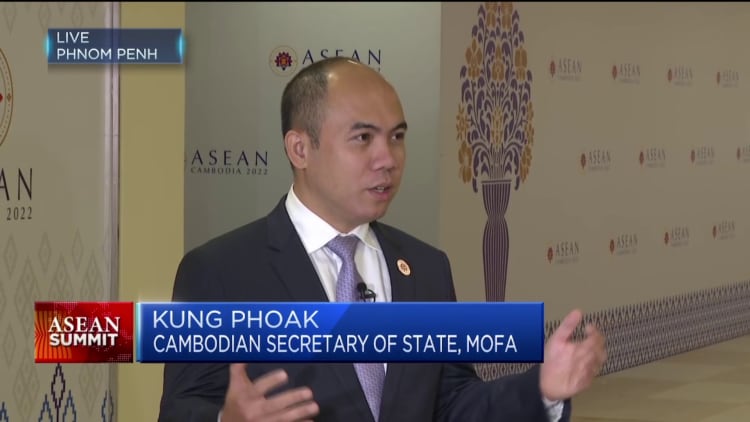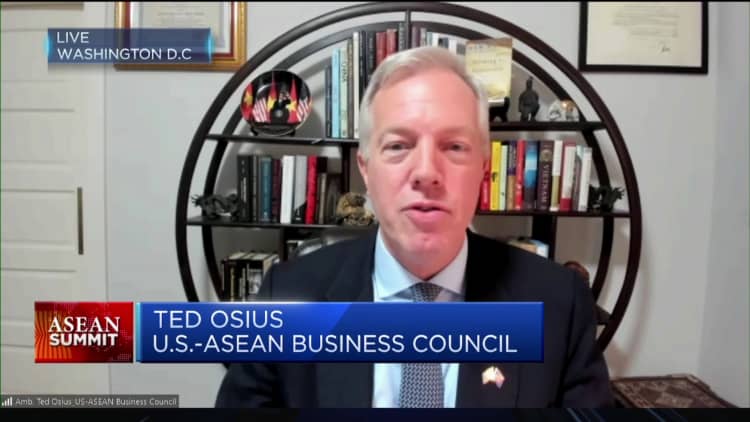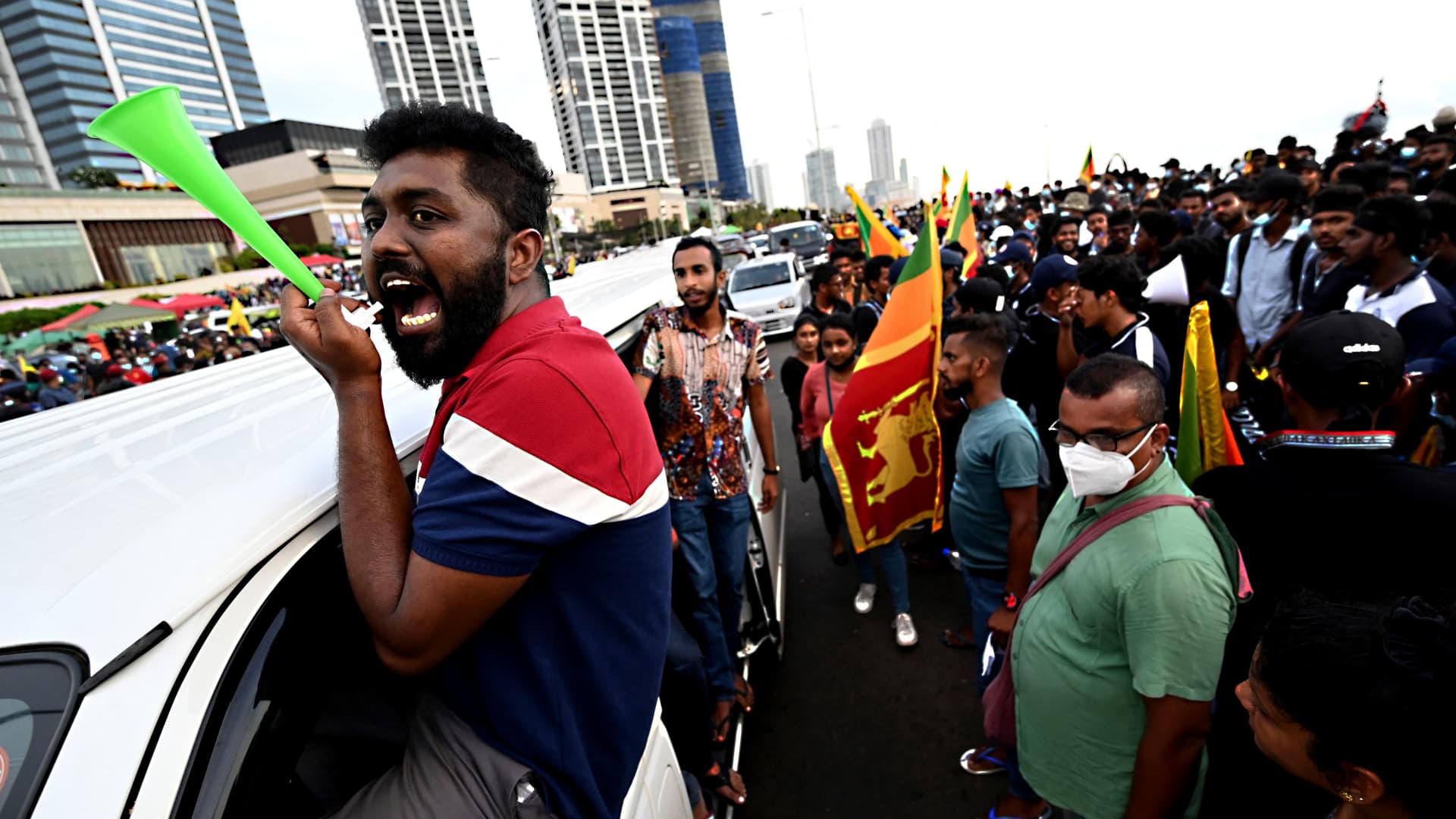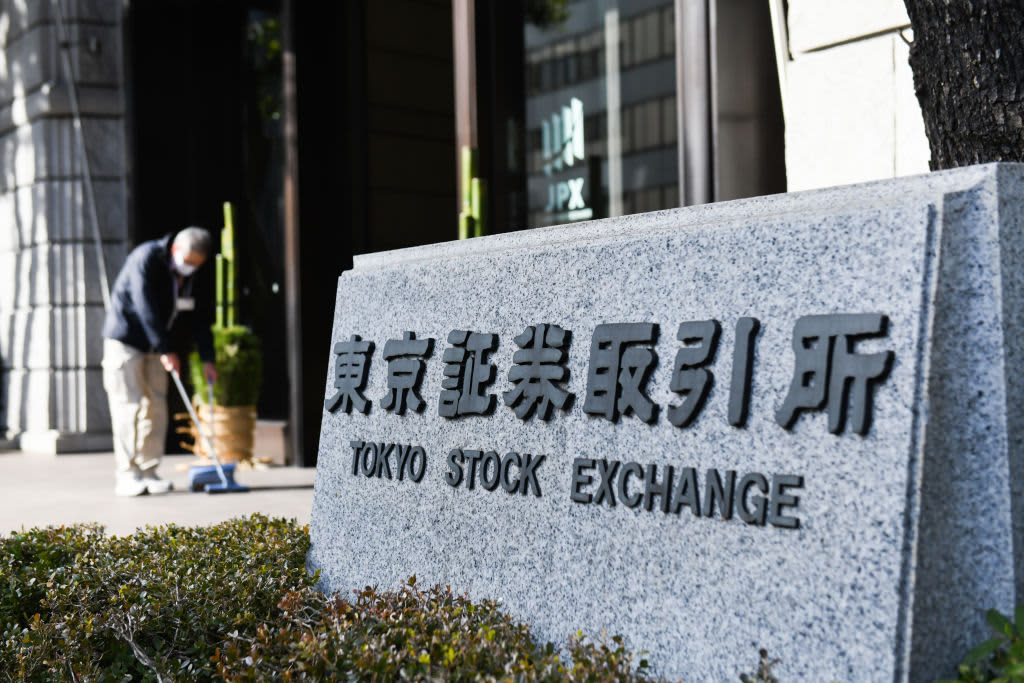Southeast Asia leaders kick off ASEAN summit in Cambodia
Cambodia's secretary of state said that ASEAN remains neutral in U.S.-China relations and is committed to establishing peaceful co-existence in the region.

From L-R: Philippines' President Ferdinand Marcos Jr, Singapore's Prime Minister Lee Hsien Loong, Thailand's Prime Minister Prayut Chan-o-cha, Vietnams Prime Minister Pham Minh Chinh, Cambodia's Prime Minister Hun Sen, Indonesias President Joko Widodo, Sultan of Brunei Hassanal Bolkiah, Laos' Prime Minister Phankham Viphavanh and Malaysia's lower house speaker Azhar Azizan Harun wave on stage during the opening ceremony of the 40th and 41st Association of Southeast Asian Nations (ASEAN) Summits in Phnom Penh on November 11, 2022. (Photo by TANG CHHIN Sothy / AFP) (Photo by TANG CHHIN SOTHY/AFP via Getty Images)
Tang Chhin Sothy | Afp | Getty Images
Southeast Asian leaders kicked off the ASEAN summit in the Cambodia on Friday, with Myanmar's political crisis and the U.S.-China rivalry expected to dominate discussions.
Cambodia, this year's chair for the Association of Southeast Asian Nations (ASEAN), is hosting the weekend summit in Phnom Penh — the group's first in-person meeting since the Covid pandemic.
The 10-nation bloc is made up of Brunei, Cambodia, Indonesia, Laos, Malaysia, Myanmar, the Philippines, Singapore, Thailand, and Vietnam. Myanmar, however, was not invited to this year's summit, following the military coup in 2021 which saw its elected leader Nobel peace laureate Aung San Suu Kyi ousted from power.
Leaders from the U.S., China, South Korea and Japan will also be meeting ASEAN leaders in Phnom Penh.
"Looking to the future, ASEAN needs to strongly promote the values that have made ASEAN successful over the past five decades. It is a result of hard work and perseverance that we all need to cherish to continue to record success in the time ahead," said Hun Sen, Prime Minister of Cambodia at the opening ceremony.
"The U.S.-China relations are the most important relations, not just to the two countries, but also to our regional development as well," said Kung Phoak, Secretary of State of the Ministry of Foreign Affairs and International Cooperation, Cambodia, told CNBC "Squawk Box Asia" Thursday, before the summit officially started.

He said the bloc is "looking at ways on how we can strengthen ourselves."
"We put forward a number of frameworks, strategies and policies and also expand partnerships with not just the U.S. and China, but with many other countries as well," said Kung.
'The more trading partners, the better'
Just last month, the U.S. restricted China's ability to obtain and manufacture some specific types of advanced computing chips, thereby crimping China's access to key technology.
"ASEAN remains neutral in this competition and we don't want to choose sides. ASEAN wants to work closely with both countries," Kung told CNBC.
The U.S. and China are two of ASEAN's top trading partners.
Collectively, ASEAN is the U.S.'s fourth largest goods trading partner, according to the U.S. Trade Representative office. U.S. goods and services trade with the bloc reached an estimated $362.2 billion in 2020, it said.
According to Chinese state media, with China remaining the largest trading partner of ASEAN for 13 consecutive years, according to an August report. Trade between China and the ASEAN reached $544.9 billion in the first seven months of this year, state-backed media Xinhua reported.
ASEAN currently has free trade agreements with the two powerhouses aiming for free flow of goods, services, and investments.
"China may be the number one trading partner of ASEAN, but ASEAN looks to the U.S. for innovation," said Ted Osius, president and CEO of U.S.-ASEAN Business Council.
"It's about diversification when it comes to ASEAN and you don't want to have your economy dominated entirely by one other economy. The ASEAN nations want more trading partners, the more, the better," he told CNBC's "Street Signs Asia" on Thursday.
Building peace
Besides establishing strong economic cooperation, ASEAN is also in ongoing dialogue with nations to establish peace.
"We want to get more [nations] to sign the Treaty of Amity and Cooperation," said Kung. The Treaty of Amity and Cooperation in Southeast Asia is a peace treaty among Southeast Asian countries established in 1976.

Ukraine signed the treaty on Thursday, bringing the number of state parties to the treaty of ASEAN to 50.
"We don't support threat or use of force against another sovereign country. And Ukraine is one of the partners we are hoping to further deepen the relationship going forward," Kung said when asked about Russia invading Ukraine.
On the Myanmar military's violent crackdown on dissent, Kung reiterated that "Myanmar is an integral part of ASEAN."
"The more we deviate from the Five-Point Consensus and the ASEAN charter, the more difficult it is to move forward with the regional agenda," he said.
The Five-Point Consensus refers to ASEAN leaders' agreement in April last year, which called for the immediate cessation of violence in Myanmar.
The military administration of Myanmar has shown no commitment to the Five-Point Consensus, despite agreeing to it in a special meeting in April, two months after the coup which overthrew the democratic government.
For this reason, the military administration of Myanmar has been excluded from high-level meetings of the bloc.
"It's in the best interest of all the ASEAN member states to find a way to make sure that the problems there can be solved as soon as possible," Kung added.

 Kass
Kass 































